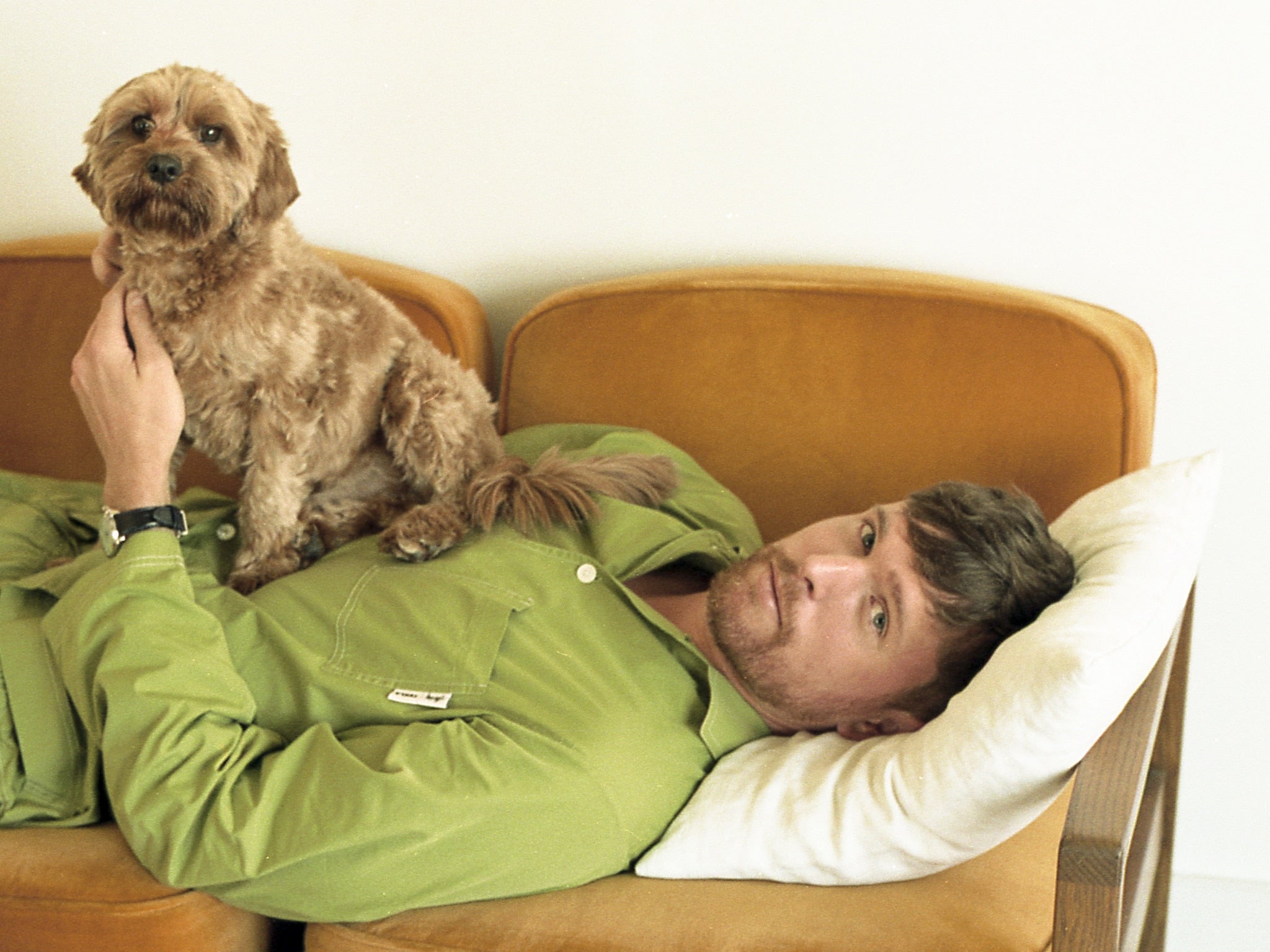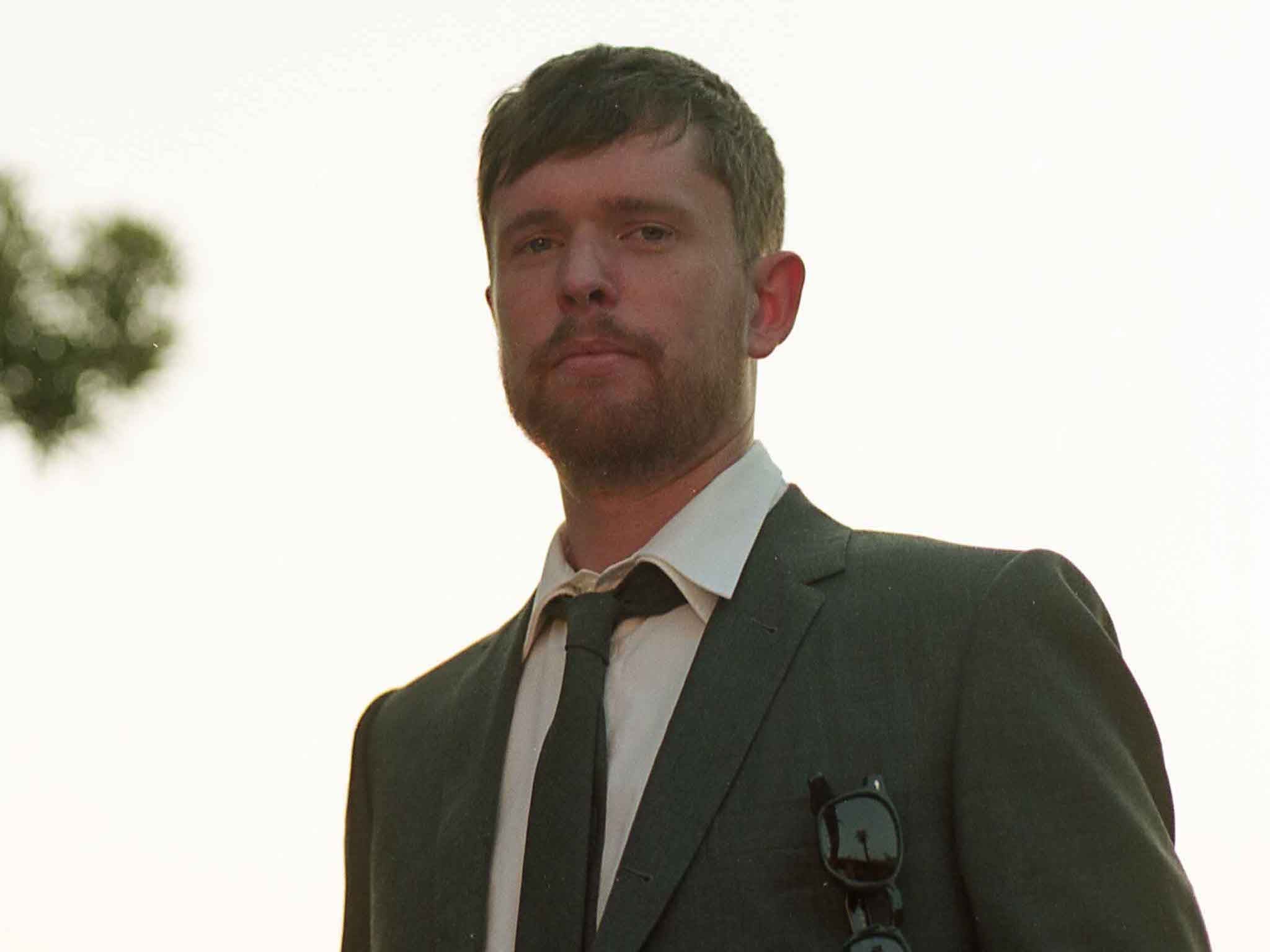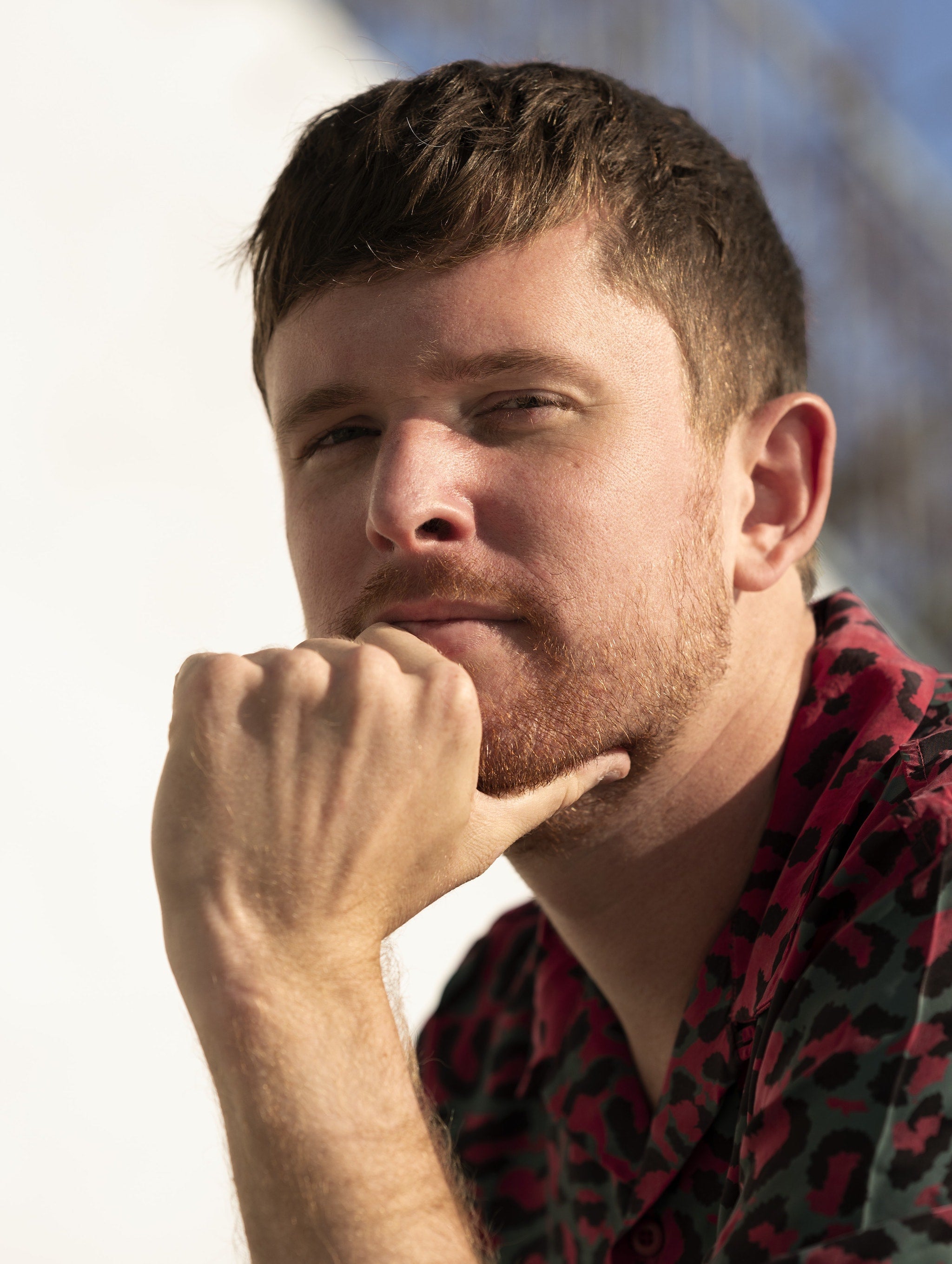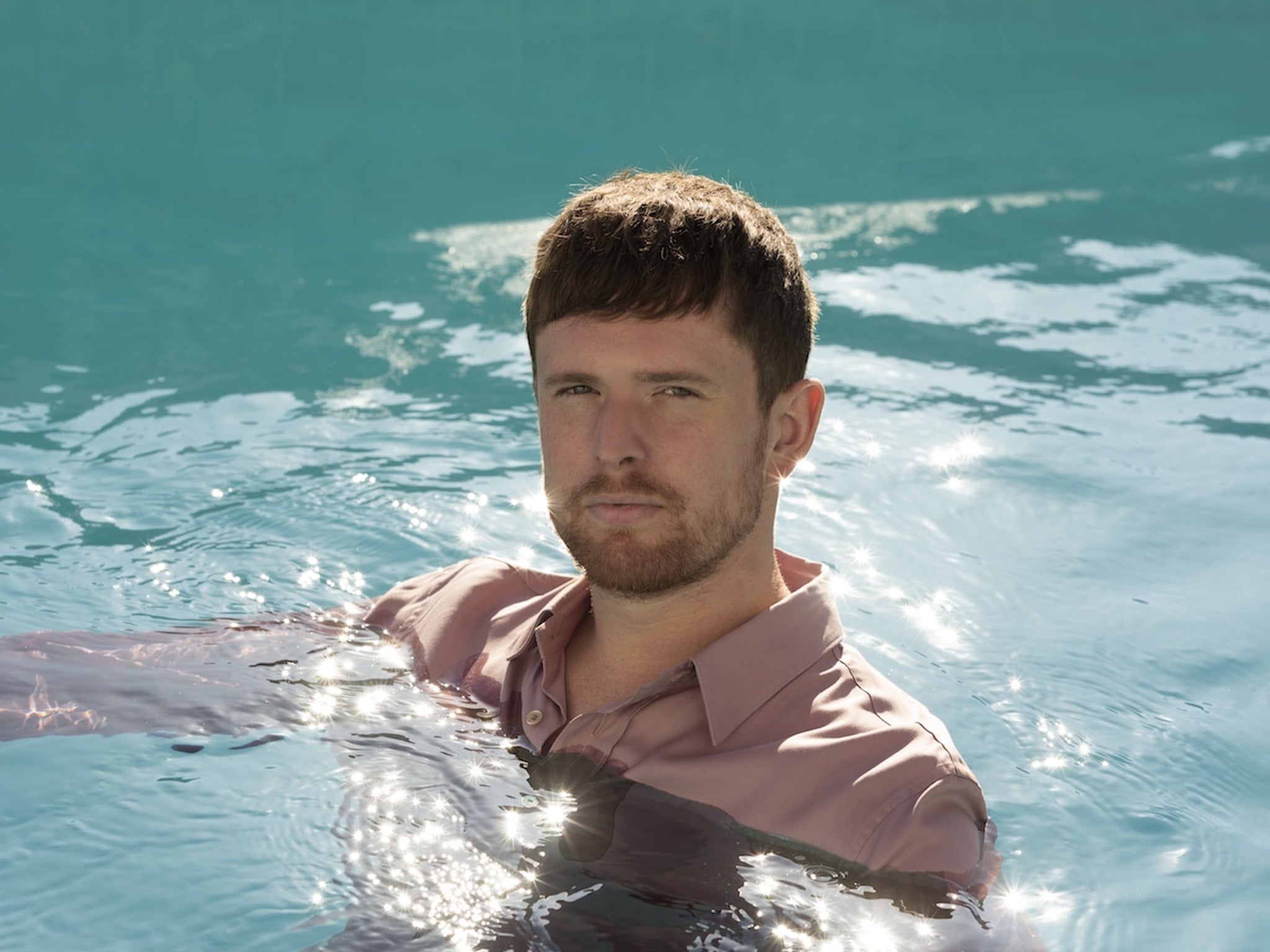James Blake: ‘I think a lot of depression is just repressed rage’
Exclusive: As the musician returns with his most classic-sounding album yet, he talks to Laura Barton about breaking up with friends, the secret to great collaboration and how a newfound emotional directness has shaped his lyrics

Your support helps us to tell the story
This election is still a dead heat, according to most polls. In a fight with such wafer-thin margins, we need reporters on the ground talking to the people Trump and Harris are courting. Your support allows us to keep sending journalists to the story.
The Independent is trusted by 27 million Americans from across the entire political spectrum every month. Unlike many other quality news outlets, we choose not to lock you out of our reporting and analysis with paywalls. But quality journalism must still be paid for.
Help us keep bring these critical stories to light. Your support makes all the difference.
At one point I thought I was going to write a dance music record,” says James Blake. “I was like: ‘No one’s going to know what’s coming! They all think I do down-tempo but I’ve actually got loads of energy! I can be fun!’”
Across the computer screen today, Blake does indeed make up-tempo company, offering unguarded references to his partner, the presenter and actor Jameela Jamil, introducing me to their poodle mix, Barold – “Look at his little paws! He’s like a teddy bear!” – and readily discussing life in Los Angeles, where the pair relocated from London in 2016. “Grey here is existential,” he says with a nod to the overcast sky behind him. “Whereas in England, grey is our reality.”
Still, on record, Blake’s persona has long been more subdued: a forlorn set to the piano, an exquisitely doleful turn to the vocal, a kind of wet leaf electronica that has produced songs such as “Retrograde”, “Mile High”, “Give Me My Month”, sublime covers of Joni Mitchell, Feist, Billie Eilish, and Joy Division songs, four solo albums, collaborations with Beyoncé, Dave, Frank Ocean, Kendrick Lamar, Drake, Travis Scott and Bon Iver, among many. It’s a musical deportment that is uniquely Blakean and has proved remarkably successful: a Grammy award, a Mercury prize, critical acclaim, Top 10 albums, and compelling live performances – the singer recently announced he would be playing London’s 10,000-capacity Alexandra Palace.
So when he mooted a possible change in musical direction, those closest to him were gently discouraging. Perhaps, they said, the up-tempo dance songs might make an EP; stick to the usual stuff for the album. “You’re probably right,” Blake agreed. And anyway, by that time, the more familiar material he had begun working on at New York’s Electric Ladyland studios had “begun to grow arms and legs”.
This is not to suggest that the terrain of Blake’s fifth album, Friends That Break Your Heart, is well-trodden. While there is a continuation of the sound he honed on 2019’s Assume Form, the album infused with rap and R&B, and with collaborations with SZA, JID, and SwaVay, some of the tracks are the most classic songwriting of his career. “Show Me”, for instance, sung with Chicago singer Monica Martin, has the faint air of a Disney duet, while a song such as “Say What You Will” wouldn’t feel entirely out of place sung by Randy Newman. Blake’s writing, particularly lyrically, has acquired a striking emotional directness.
“I think Jameela encouraged me with that,” he says now. “She’s a very direct and honest person, and I was struggling with my writing at one stage and she identified that the reason I felt like I wasn’t being heard, and the reason I felt like people weren’t necessarily understanding the lyrics to my songs, or understanding the meaning behind them, was that I wasn’t being as plain as I could be, and as truthful, unflinchingly truthful, as I could be. Initially I found that hard to hear, and then I realised she was right, and that set off a chain reaction of honesty in my songs.”

In technical terms, he says this honesty shows itself as “economy in the lyrics” – a track such as “Coming Back”, which Blake describes as a “conversation between two lovers where it hasn’t really worked out and there’s redemption in it”, relies on the keen description of the pain of loss: “Because it hurts, like the end of the world,” he sings. The art comes “when every phrase really means something and it’s not just being strung together to form a melody or to make a song work overall. Every lyric counts.”
In this, he was also greatly influenced by hip-hop lyricism. “Because with really great rap, you can tell they’ve gone in on every line and made sure that it made sense for the story, and that every line hits you in a certain way, every punchline hits. It’s like all of the meaning has been squeezed fully out of it, or into it. That’s what I wanted in my songs.”
In writing the album, Blake often returned to one of George Orwell’s rules for good writing: “If it is possible to cut a word out, always cut it out.” “My language was much more flowery in the past because I think sometimes I was flexing my vocabulary,” he says, “but not actually arriving at something meaningful, or I was using a certain word because I felt fear about using the simple word, because I thought the simple word would reveal how pathetic I was for feeling that thing. But it’s not actually pathetic to feel vulnerable. The way that I grew up, I was made to feel that vulnerability was a shameful feeling as a man especially, and so I just think I unconsciously covered those feelings up with language that wasn’t accessible.”
Enjoy unlimited access to 100 million ad-free songs and podcasts with Amazon Music
Sign up now for a 4 month free trial (3 months for non-Prime members)
Enjoy unlimited access to 100 million ad-free songs and podcasts with Amazon Music
Sign up now for a 4 month free trial (3 months for non-Prime members)
At a certain point, Blake realised that the feelings that fired this record were not about romantic love – “they weren’t all love songs in the traditional sense” – rather they were about “feeling forlorn about losing a friend, someone I’ve known maybe my whole life, or someone where I thought we were going to be friends forever”.

He thinks for a moment. “The protocol for friendship ending isn’t really there,” he says. “Like, what do you do? Unlike a romantic relationship, where you can basically say, ‘I’m just not happy, this isn’t right to me anymore’, if you said that to a friend they’d be like, ‘What the f*** are you talking about? Just don’t text me!’”
Blake is 32 now, and the course of his career over the past decade, the months spent on tour, the move to California, the peculiar weight of fame and success, have understandably affected certain friendships. “I don’t mean to excuse this behaviour but I’m overwhelmed quite easily, so I can just go months without communicating properly with people,” he says. “And it’s not because I don’t care about people, but it’s the ways that being a musician may have mutated my ability to sustain relationships. Or it’s also how people change the way they look at you, and the way certain friendships couldn’t withstand the change in environment, and the change when one of you just lives a completely different life, and the world looks at them completely differently to the way you did.”
“Rappers talk about this dynamic all the time,” he continues. “Like, ‘I got successful and then people started looking at me differently and they say you’ve changed but actually it’s them that’s changing…’ There’s so many ways friendships can end – it’s not simple. But the things I’ve written about on this record, they’re all real. In some way I’ve felt silly for caring so much because for some reason I’ve been made to feel that way by overall conditioning. But at a certain point you have to say, ‘No, I feel genuinely heartbroken about losing this person and it’s worth talking about.’”
At a certain point you have to say no, I feel genuinely heartbroken about losing this person and it’s worth talking about
Over the years, Blake has grown increasingly willing to talk about tough subjects – misogyny, masculinity, mental health. In 2019, when a Pitchfork reviewer dismissed his work as “sad boy music”, Blake was quick to respond: “I can’t help but notice, as I do whenever I talk about my feelings in a song, that the words ‘sad boy’ are used to describe it,” he said. “I’ve always found that expression to be unhealthy and problematic when used to describe men just talking openly about their feelings.”
Today, he believes this ready vulnerability has been valuable. “It’s brought a lot to my life I think,” he says now. “Being open about what you’re going through as much as you can is an immense release of pressure. The mind can be like a pressure cooker and we need that. That moment where you’re feeling something’s happened and it’s pissed you off or triggered you or made you feel anxious or unsafe in some way, and if you’re carrying that feeling into the next thing you go into...”

This will then have ramifications for other relationships, he says, for the conversation with a partner or a friend, or a working collaboration. “If you’re not saying out loud how it is you feel, then you’re just carrying all of this behaviour. It’s an antidote to a lot of anxiety, a lot of depression. I think a lot of depression is just repressed rage. So say your piece, especially to the people you want to say it to. You have every right to say whatever it is you want to say. That ethos is basically akin to me saying what it is I want to say on these records and in my life.”
In tandem, Blake says he has grown increasingly aware of how much space he takes up as a white male musician. He tries to remind himself of this often – in the studio, as a producer, as a collaborator – and tries not to let his ego rise up. “How much space you need can be related to trauma, it can be related to having felt underestimated in the past, it can be related to privilege, it can be related to feeling entitled to space,” he says. “But I think once you confront the idea that actually we’re not just entitled to endless amounts of space, you can think about, ‘What makes me feel that I can just take over a situation or control a situation? Why would I even want that? What’s at the root of that? Who took control away from me initially that made me constantly need to take it back?’ They’re questions that lead to I think a healthier relationship with control and a healthier relationship with collaboration overall, whether it’s in music or anything else.”
Musical collaborations are not wildly different to friendships, he says. “The most fun collaborations are the ones where you end up chatting and having a laugh,” he says – “like Dave, Slowthai, when we’ve got a lot in common, where we grew up, some of the similar cultural reference points. I think a lot of the songs that I’ve worked on have come from chatting to be honest.”

When Blake was young, he didn’t think of himself as terribly sociable. “Music was my primary form of communication in a lot of ways,” he says. “But as I became more confident again – and I say ‘again’ because I was confident as a child, and then I lost it somewhere along the line – but then when I got my confidence back, all I wanted to do was chat.”
Today he likes these moments best, these rich, fun, intimate moments when he finds himself deep in the “ping pong” of conversation, sharing ideas, thoughts, views on the world. “And if music comes out of that, then great,” he says. “But I’ve created so many songs in my life, it’s like creating a song isn’t as important as having fun anymore.”
‘Friends That Break Your Heart’ is out on 8 October via Republic Records and Polydor Records



Join our commenting forum
Join thought-provoking conversations, follow other Independent readers and see their replies
Comments